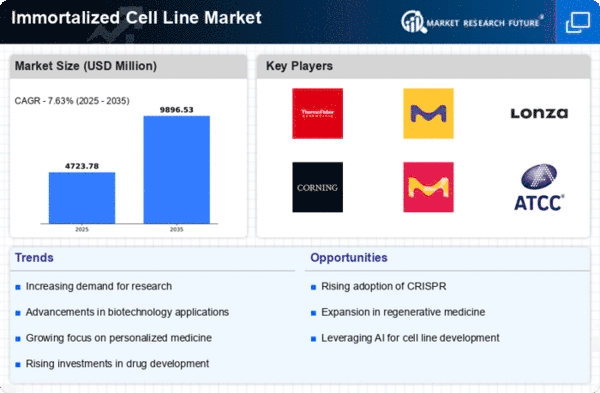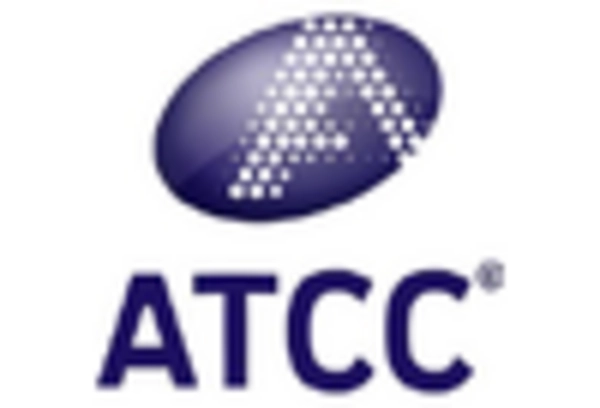Market Trends
Key Emerging Trends in the Immortalized Cell Line Market
Continuous cell lines have become a preferred choice for numerous pharmaceutical and biotech companies when testing drug efficacy. This shift has resulted in a reduced reliance on gnotobiotic animals like mice, rabbits, and monkeys for research purposes. The extended shelf life and easy preservation of these cell lines through cryopreservation and lyophilization techniques make them advantageous for research and development (R&D) activities in the biotech and pharmaceutical sectors. In 2014, the Department of Pharmaceutical Sciences and Bio Manufacturing Research Institute and Technology Enterprises (BRITE) reported a substantial investment of around USD 1.3 billion in new pharmaceuticals for drug discovery through cell line culture. While 3D cell culture models are gaining traction in research, cell lines are expected to maintain their relevance in the market due to various capabilities. These include interactions between different cell types, the integration of flow, the establishment of barrier tissues, better simulation of conditions in a living organism, reduced dependence on animal models, and a more realistic approach to growing and treating tumor cells. Cell culture biosensors contribute to biomedical and bioanalytical applications, enabling early detection and chronic disease management, along with environmental monitoring.
The cell line culture technique serves as a crucial bridge between in-vitro and in-vivo culturing processes, finding applications in diverse fields such as cancer cell biology, drug discovery, and stem cell research. According to an updated report from North Carolina Central University in 2014, cell line culture biosensors are particularly valuable for anticancer drug screening due to their ability to conduct multiplex analyses of different drugs and cancer cells.
Market leaders like ECACC and ATCC hold substantial shares, serving as exclusive suppliers of authentic cell lines. Their extensive product portfolios, covering cell lines, media, and equipment globally, contribute to their dominance in the market. The increasing utilization of cell lines across various applications has also opened doors for new entrants in the market. Compared to the organ culture model, the cell line culture model stands out as a better option, providing more accurate results in less time. Over the past decade, the cell line culture model has been extensively utilized for research purposes, showcasing its significance and effectiveness in advancing scientific understanding.


















Leave a Comment